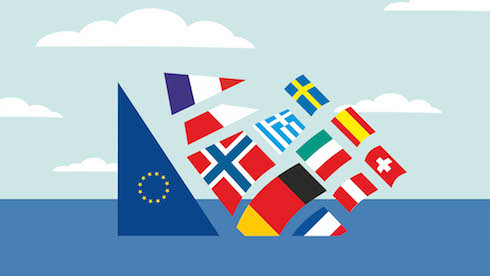First of all, the European Union is undoubtedly going through a serious identity crisis. It is hard to say why it should exist in the first place. Is it supposed to unite nations so that they fight no more wars on the continent and act in unison in the global arena, as Europe’s founding fathers envisaged, or is it, as the British would argue, only supposed to create opportunities for development thanks to economic cooperation as part of a single market? Is it supposed to create the European superpower that the proponents of federalism want to see, or only to offer certain services to member states, leaving all true power to national governments as the proponents of restricting the role of Brussels demand?
Secondly, serious discussion about the current and future shape of the Union appears to have been put on hold. Instead, the pace of the preparations for the elections was set by radicals, for whom Europe’s main dilemmas boil down to “migrants stealing jobs”, “Brussels wasting money”, “euro-kolkhoz”, and greater rights for homosexuals — not that I underestimate these problems, but they do not seem to be the most pressing issues.
Thirdly and most importantly: the future of the Union seems to be of little interest to European nations. No true “European demos” has been created, and the majority of Europeans apparently treat the EU as some kind of appendage to their nation states, rather than as an institution of key importance for their future well-being and security.
Nonetheless, despite its current crisis, Europe has not ceased to be. It exists, it influences our lives, and it has an impact on the future of the world. Designing maritime strategy for the Royal Navy, the 17th century British admiral, Lord Torrington, came up with the concept of a ‘fleet in being’, which applied in a situation where a naval force is too weak to engage and defeat the enemy, but at the same time it does not want to abandon control of the sea. Torrington recommended the strategy of avoiding a sea battle, while remaining constantly ready to fight under more favourable conditions. In this way, a weaker fleet can engage the forces of a stronger enemy by the very fact of being there.
Perhaps we are now witnessing the phenomenon of a “Europe in being”. The EU does not have a common energy strategy, but the very risk it may create one incurs losses running into billions of dollars for Russia by obliging it to accept Chinese price conditions for gas deliveries. European governments may tolerate xenophobic excesses, or even preach reckless slogans, but EU law will not tolerate failure to observe the basic principles of a common market. Prime ministers may call companies on the carpet to demand that they stop investing abroad, but these companies will nonetheless benefit from opportunities created by European integration.
And one day, a time will probably come when we can once again resume discussion about the role, the significance and the functioning of the European Union.
Was this article useful? If so we are delighted!
It is freely available because we believe that the right to free and independent information is essential for democracy. But this right is not guaranteed forever, and independence comes at a cost. We need your support in order to continue publishing independent, multilingual news for all Europeans.
Discover our subscription offers and their exclusive benefits and become a member of our community now!












